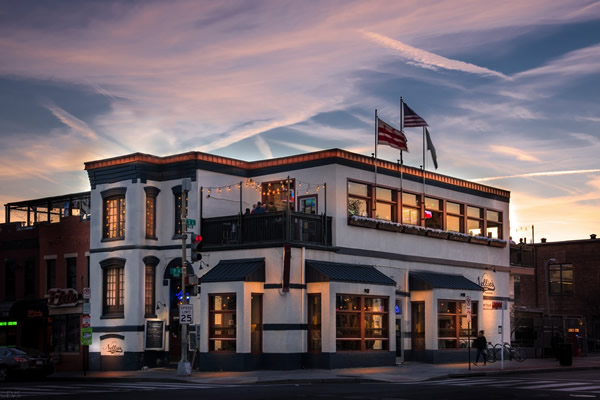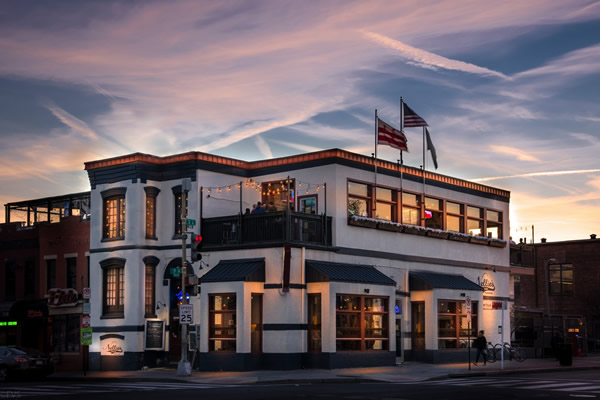
(Photo courtesy of Nellie’s Sports Bar)
Walking into a gay bar felt like crossing the Rubicon. I was a grad student dabbling in “the love that dare not speak its name,” but I avoided gay bars. Visiting one would be an admission that I wasn’t just doing something, but, rather, being someone. Until one day, even though I wasn’t ready to attach identity to my experiences, I walked through the doors. Until then, my relationships were on one side of the closet, and coming out portended an empty world on the other side. Gay bars showed me that I wasn’t alone. Being among people, however, isn’t the same as a community, something I’ve struggled with in my expectations of gay bars.
What exactly are gay bars: community or lifestyle enclave?
That’s a question raised by “Gay Bar: Why We Went Out” by Jeremy Atherton Lin. Part memoir/part anthropology, Lin navigates the history and nature of the storied gay bar. It couldn’t have come at a better time. Homebound, I reminisced about nights out while reading about Jeremy’s. But also got to thinking: what will we be walking back into once the pandemic ends?
After coming out, I had expected gay bars to be spaces of bonding. To my chagrin, I found that sense of community wanting. On occasion, I found the fraternity I was searching for, albeit fleetingly. You must always know that there is nothing wrong with you no matter what your parents say, a Latinx lesbian told me one night as we smoked and swapped stories on less-than-accepting mothers. I never saw her again and didn’t even catch her name, but that moment held for me what I wanted in those spaces: To connect with people beyond lookism and sex. Reading “Gay Bar,” I nodded with the observation: “The gay bars of my life have consistently disappointed.”
“Gar Bar” advances the theory that communities are born out of shared history. And “where history is forgotten … community degenerates into lifestyle enclaves.” And lifestyle celebrates the “narcissism of similarity” and promotes private concerns, “namely leisure and consumption.” Most gay bars, I have found, are not cultivators of community. We arrive and depart with the people we already know. Contact with outsiders tends to be ephemeral and skin deep. Consumption is the defining ethos.
But “perhaps you could call a gay bar a galaxy: We are held together but kept from colliding by a fine balance of momentum and gravity,” Lin proposes. I’ve learned to think of this galaxy as enough. And to see the beauty in it: We all gather without really knowing each other, but in that transient night, we’re keeping alive the simulacrum of a shared experience. And therein lies the potential of gay bars: Sometimes stars collide and sparks fly.
That potential is under threat. “Gay Bar” is partly an obituary as spaces shut down. Reasons abound: the young generation feels less need for them, out-of-control gentrification, and Grindr. Ironically, the fact that gay bars are no longer strictly for gays might end up saving many. One word: Nellie’s. The gay sports bar has become a pitstop for bachelorettes, which can be problematic. “Gay Bar” relates one night where a bride-to-be corralled the gays into a serenade. Our spaces should be welcoming but down with the instrumentalization of gay men as playthings.
The Invasion of the Brides, however, speaks to a larger truth. Gay bars are constantly in flux, opening here and closing there, transitioning from the Mean Gays set to a queer subversive vibe, adding drag nights and brunch Sundays. This adaptation has often made them resilient. I should close with a disclaimer: Mine is not the “authentic” experience; there’s no such thing. And that’s what makes Lin such a wonderful guide. There’s something in Gay Bar(s) for everyone. For those dreaming of when the music will start playing again, and cruising will no longer violate the health code, “Gay Bar” is an antidote to our abstinence until we can revive the real thing.
Khelil Bouarrouj is an activist who writes about LGBTQ issues.








